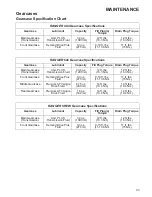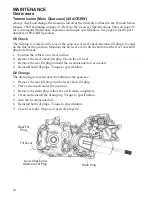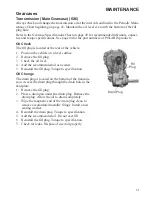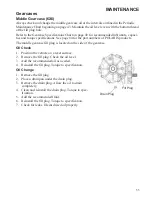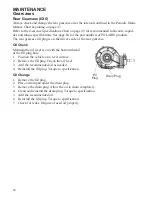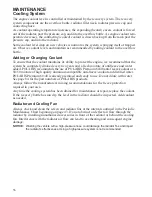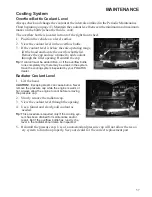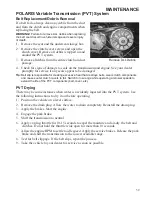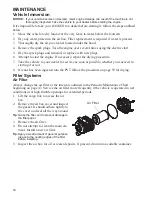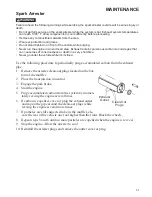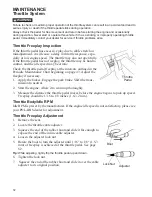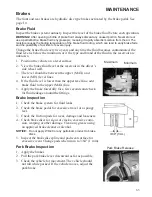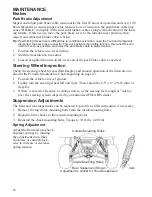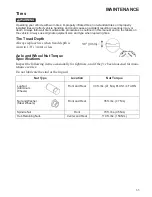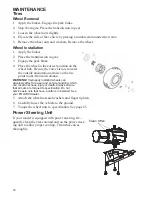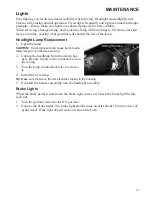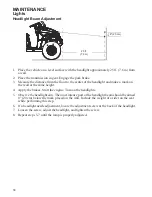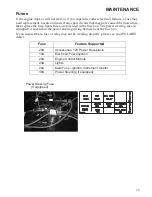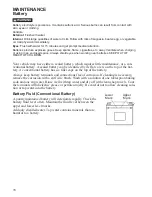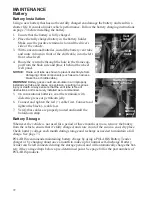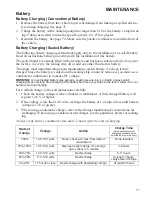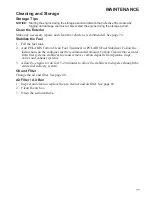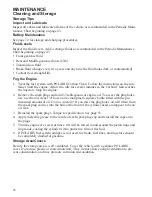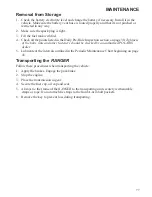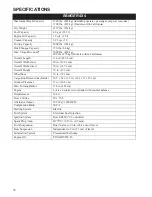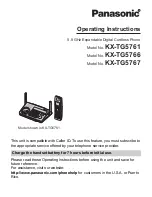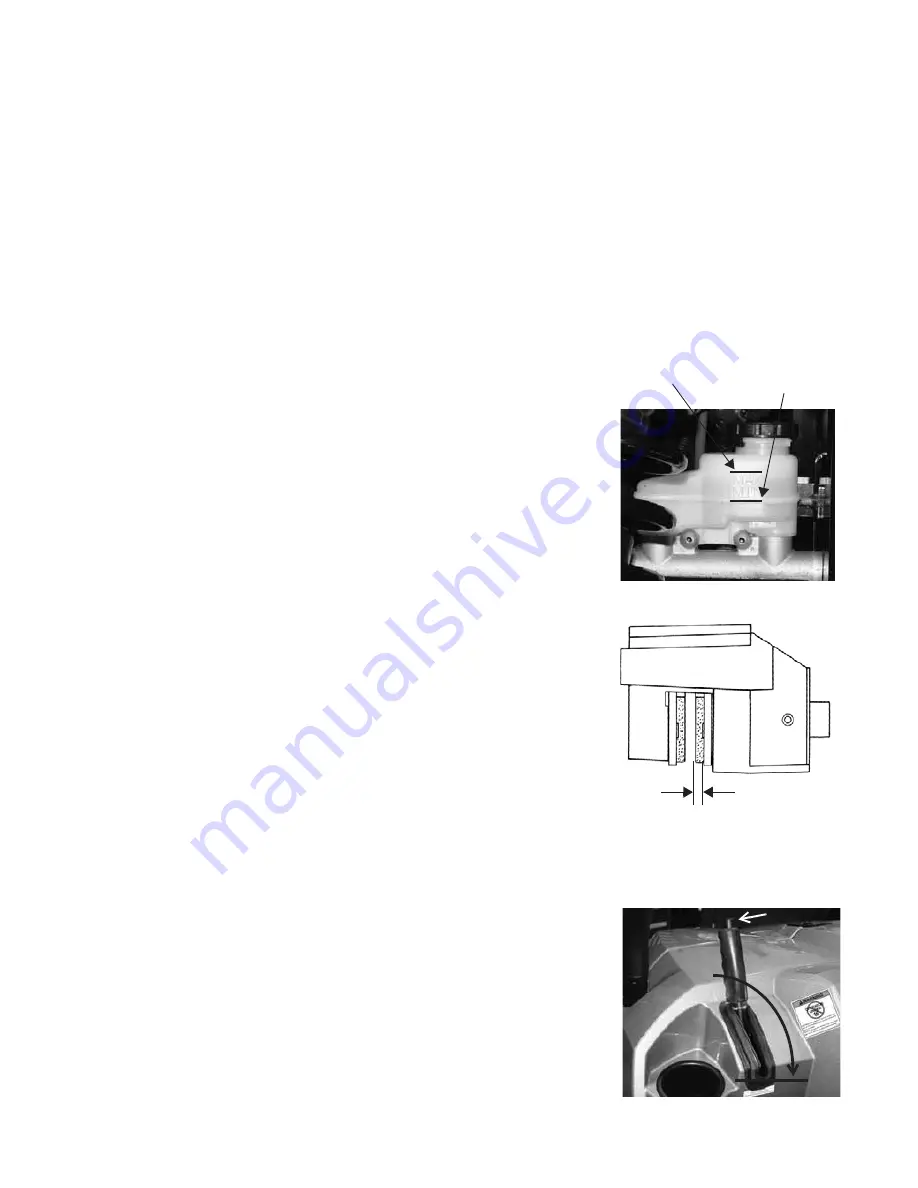
63
MAINTENANCE
Brakes
The front and rear brakes are hydraulic disc type brakes activated by the brake pedal. See
page 19.
Brake Fluid
Inspect the brake system routinely. Inspect the level of the brake fluid before each operation.
WARNING!
After opening a bottle of brake fluid, always discard any unused portion. Never store or
use a partial bottle. Brake fluid is hygroscopic, meaning it rapidly absorbs moisture from the air. The
moisture causes the boiling temperature of the brake fluid to drop, which can lead to early brake fade
and the possibility of accident or severe injury.
Change the brake fluid every two years and any time the fluid becomes contaminated, the
fluid level is below the minimum, or if the type and brand of the fluid in the reservoir are
unknown.
1. Position the vehicle on a level surface.
2. View the brake fluid level at the reservoir in the driver’s
side wheel well.
3. The level should be between the upper (MAX) and
lower (MIN) level lines.
4. If the fluid level is lower than the upper level line, add
brake fluid to the upper (MAX) line.
5. Apply the brake forcefully for a few seconds and check
for fluid leakage around the fittings.
Brake Inspection
1. Check the brake system for fluid leaks.
2. Check the brake pedal for excessive travel or a spongy
feel.
3. Check the friction pads for wear, damage and looseness.
4. Check brake discs for signs of cracks, excessive corro-
sion, warping or other damage. Clean any grease using
an approved brake cleaner or alcohol.
NOTICE:
Do not apply WD-40 or any petroleum product to brake
discs.
5. Inspect the brake disc spline and pad wear surface for
excessive wear. Change pads when worn to 3/64" (1 mm).
Park Brake Inspection
1. Apply the brakes.
2. Pull the park brake lever downward as far as possible.
3. Check the vehicle for movement. The vehicle should
not roll while parked. If the vehicle moves, adjust the
park brake.
Maximum
Minimum
3/64" (1mm)
Park Brake Release

